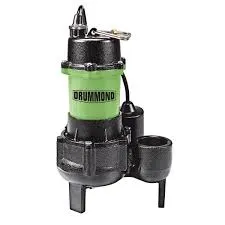Icelandic
- Afrikaans
- Albanian
- Amharic
- Arabic
- Armenian
- Azerbaijani
- Basque
- Belarusian
- Bengali
- Bosnian
- Bulgarian
- Catalan
- Cebuano
- Corsican
- Croatian
- Czech
- Danish
- Dutch
- English
- Esperanto
- Estonian
- Finnish
- French
- Frisian
- Galician
- Georgian
- German
- Greek
- Gujarati
- Haitian Creole
- hausa
- hawaiian
- Hebrew
- Hindi
- Miao
- Hungarian
- Icelandic
- igbo
- Indonesian
- irish
- Italian
- Japanese
- Javanese
- Kannada
- kazakh
- Khmer
- Rwandese
- Korean
- Kurdish
- Kyrgyz
- Lao
- Latin
- Latvian
- Lithuanian
- Luxembourgish
- Macedonian
- Malgashi
- Malay
- Malayalam
- Maltese
- Maori
- Marathi
- Mongolian
- Myanmar
- Nepali
- Norwegian
- Norwegian
- Occitan
- Pashto
- Persian
- Polish
- Portuguese
- Punjabi
- Romanian
- Russian
- Samoan
- Scottish Gaelic
- Serbian
- Sesotho
- Shona
- Sindhi
- Sinhala
- Slovak
- Slovenian
- Somali
- Spanish
- Sundanese
- Swahili
- Swedish
- Tagalog
- Tajik
- Tamil
- Tatar
- Telugu
- Thai
- Turkish
- Turkmen
- Ukrainian
- Urdu
- Uighur
- Uzbek
- Vietnamese
- Welsh
- Bantu
- Yiddish
- Yoruba
- Zulu
Telephone: +86 13120555503
Email: frank@cypump.com
nóv . 06, 2024 11:49 Back to list
slurry dewatering pump
The Importance of Slurry Dewatering Pumps in Industrial Applications
In various industrial processes, the efficient management of slurry is crucial. Slurry, a mixture of solids and liquids, is commonly produced in mining, construction, wastewater treatment, and various other industries. One of the most effective solutions for handling this slurry is the use of slurry dewatering pumps. These pumps play a vital role in the separation of solids from liquids, allowing for better resource management and environmental compliance.
Dewatering pumps are specifically designed to handle the challenges presented by slurry, which can be viscous and abrasive. Unlike standard pumps, slurry dewatering pumps feature robust designs capable of managing a wide range of solid particle sizes and concentrations. They utilize various mechanisms that enable the efficient extraction of water from the slurry while leaving behind the residual solids. This process not only maximizes recovery rates of valuable materials but also minimizes the volume of waste that needs to be disposed of, leading to significant cost savings.
One of the primary applications of slurry dewatering pumps is in the mining sector. Here, they are essential in managing tailings, which are the waste materials left after the extraction of valuable minerals. By dewatering these tailings, mining operations can reduce the overall footprint of waste storage. The separated water is often reused in the mining process, promoting sustainability and reducing freshwater consumption. Furthermore, effective tailings management mitigates the risk of environmental contamination, making these pumps indispensable in modern mining practices.
slurry dewatering pump

In the construction industry, slurry dewatering pumps are utilized for managing excess water generated during excavation and foundation work. Waterlogged sites can lead to delays and increased costs, making it essential to maintain optimal conditions. These pumps help contractors manage groundwater and rainwater, ensuring that projects can proceed efficiently and on schedule. Additionally, the solid waste collected by the pumps can often be repurposed or safely disposed of, further enhancing the sustainability aspects of construction projects.
Wastewater treatment facilities also benefit significantly from slurry dewatering pumps. In the treatment process, sludge is generated, and effective dewatering is necessary to reduce its volume before disposal or further processing. Dewatering pumps facilitate the separation of solids from liquids, allowing for the efficient handling of sludge, which leads to more manageable waste and reduced operational costs for treatment facilities.
Moreover, advancements in technology have led to the development of more efficient slurry dewatering pumps. Innovations such as variable speed drives and smart monitoring systems enhance the performance and reliability of these pumps, enabling operators to optimize their use based on real-time conditions. This adaptability not only improves efficiency but also extends the lifespan of the pumps, offering substantial savings in maintenance and replacement costs.
In conclusion, slurry dewatering pumps are a critical component in various industrial applications, from mining to construction and wastewater treatment. By effectively separating solids from liquids, these pumps support sustainability efforts, enhance operational efficiency, and contribute to responsible resource management. As industries continue to evolve, the role of slurry dewatering pumps will only grow in importance, making them an integral part of modern industrial practices.
-
Reliable Non-Clog Sewage Pumps with GPT-4-Turbo Tech
NewsAug.04,2025
-
High-Performance Air Pumps for Sand & Gravel | Efficient Transport
NewsAug.03,2025
-
ISG Series Vertical Pipeline Pump - Chi Yuan Pumps Co., LTD.|Energy Efficiency, Corrosion Resistance
NewsAug.03,2025
-
ISG Series Pipeline Pump - Chi Yuan Pumps | Energy Efficiency&Compact Design
NewsAug.03,2025
-
ISG Series Vertical Pipeline Pump - Chi Yuan Pumps Co., LTD.|High Efficiency, Low Noise, Durable
NewsAug.02,2025
-
ISG Series Vertical Pipeline Pump - Chi Yuan Pumps | High Efficiency, Low Noise
NewsAug.02,2025










